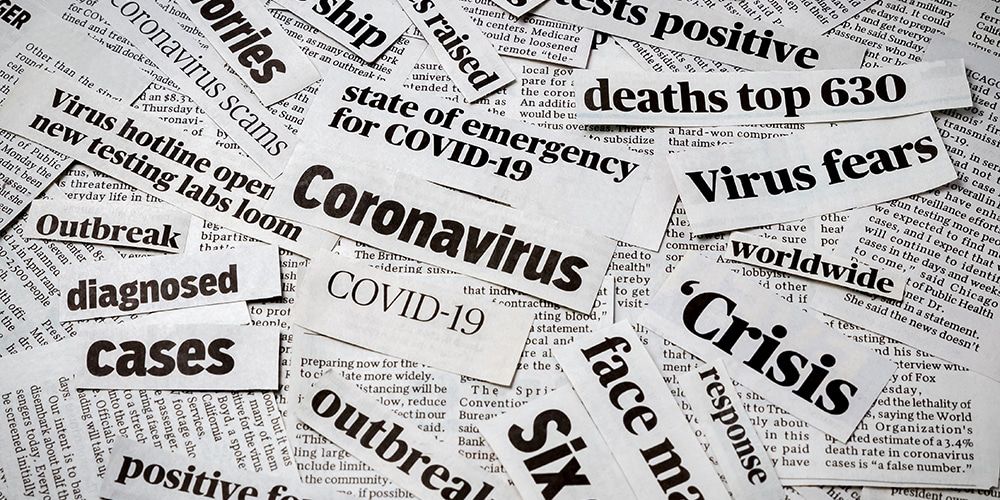Unprecedented times – it’s the phrase of the year, and for a good reason. COVID-19 has triggered a pandemic that has caused drastic change and disruption across the world. There’s no doubt the virus is scary- it’s infectious, contagious, and life-threatening.
But while we’re all feeling nervous and uncertain, some people are struggling with excess anxiety and panic. Unfortunately, these symptoms can make stressful situations feel even worse. And while there isn’t a perfect solution for coping, there are some considerations to keep in mind when prioritizing your mental health.
Accept Your Feelings
Often, when we feel anxiety or panic, we want to suppress or avoid the emotions. This thought process isn’t irrational. After all, nobody likes to feel uncomfortable.
But emotions are more complicated than we realize. Squashing or rationalizing or otherwise trying to ignore them doesn’t work. If anything, these efforts tend to backfire, which means the emotions increase with a vengeance.
Many people conflate acceptance with “giving up.” This isn’t true. Acceptance means tolerating “what is.” It means making room for the emotions and withholding judgment towards them.
You can familiarize yourself with accepting feelings by:
- Meditating
- Engaging in deep breathing exercises
- Positive affirmations (it is what it is; I can move through these feelings; my feelings are natural and normal)
- Journaling
- Labeling or describing how you feel
- “Watching” the emotion without judging it
That said, don’t expect to accept your feelings “perfectly.” It’s an impossible goal, especially if you’ve spent years shaming yourself over your emotions. Acceptance isn’t an automatic process. It requires conscious intention, effort, and willingness. In other words, you may need to accept the idea of acceptance many times!

Limit Your Media Consumption
We can access 24/7 news about COVID-19, and many of us have been glued to our televisions or smartphones, hungry for new information. While it’s wise to stay informed, too much information can impact your mental health.
Research shows that bingeing on the news can provoke the same symptoms people with PTSD experience. These symptoms may include increased nervousness and agitation, sleep disturbances, hypervigilance, severe anxiety, emotional detachment, and loss of pleasure in usual activities. Researchers postulate that these symptoms then trigger misguided, health-protective thoughts like somatization or hoarding products.
Experts recommend choosing one or two reputable sources and sticking to those for your updates. Set time limits for yourself. Moreover, trust that if something absolutely newsworthy does occur, you will find out about it!

Stay Connected To Support
With most people quarantining and practicing social distancing, loneliness represents a legitimate mental health concern. Likewise, isolation can make it difficult for loved ones to even recognize if you’re struggling.
Some lean on support when they feel anxious. Others tend to withdraw. Regardless of your tendencies, it’s crucial to focus on staying connected.
This doesn’t need to be an all-or-nothing process. You don’t need to spend hours on the phone with family or friends. But you should consider checking in, sending photos or texts, and talking about your day (even if all your days feel the same).
You can also consider seeking professional help. Most therapists now offer telehealth options to support their clients. They understand how to help people navigate the uncertainty, anxiety, and general discomfort associated with this pandemic. You don’t need to fight this battle alone. Having a safe and secure place to share your concerns can be invaluable.
Structure Your Day
Most of us have noticed an upheaval in our daily lives. You may have lost your job, or you’re working from home. Your children aren’t currently in school. These changes don’t account for the obvious medical concerns and disruptions plaguing the world.
That said, routine and structure keep us grounded. Without them, our minds often run amok. We can become victims of our own feelings. We can lose ourselves in our own stuckness.
We all thrive with some kind of predictability and discipline- especially during such fragile times. Create a basic schedule and commit to sticking to it. This schedule doesn’t need to be incredibly detailed; it can be as simple as waking up, eating breakfast, taking a shower, getting dressed, drinking coffee, and starting work.

Prioritize Your Physical Health
Although it might feel tempting to laze in front of the television, eating chips and drinking beer, this strategy often supercharges anxiety. Research continues to highlight the mind-body connection between physical and mental health. In other words, if you lead a healthy lifestyle, you tend to feel better.
Prioritizing your physical health means:
- Eating a well-rounded diet full of nutrient-rich foods
- Engaging in physical activity
- Getting an appropriate amount of sleep
- Taking any medications as prescribed
- Limiting or avoiding alcoholic beverages or mood-altering substances
Optimizing Distractions As Needed
Anxiety festers in idle minds. Right now, more than ever, we’re facing intense emotions in an intense reality. Most of us feel unnerved about the state of the world.
Distractions can help reduce some of the mental clutter. While your options might be limited to the constraints of your own home, that doesn’t mean you can’t be creative. Some activities or ideas to consider include:
- Reading fiction
- Coloring in an adult coloring book
- Watching movies or television
- Signing up for a course (many companies are offering free or low-cost classes)
- Exercising
- Listening to music
- Creating art (scrapbooking, photography, writing, sewing, knitting, making music, etc.)
- Cooking or baking
- Playing with your children or pets
- Cleaning
Practice Self-Compassion
When we feel anxious, we often also jump to guilt or shame. We feel embarrassed over our emotions; we think we’re overreacting or being a burden. We blame ourselves for the ways we think or feel.
Self-compassion can go a long way in mitigating some of the anxiety you experience. For one, it creates space for changing the way you think about yourself. Rather than assuming you’re incompetent or unlovable, you can find a middle ground in recognizing that, while you aren’t perfect, you are only human.
Furthermore, self-compassion can help you see situations more clearly. When you have your own back, you’re able to maintain boundaries and prioritize self-care. Both of these strengths position you for improved clarity and mental well-being.
Final Thoughts
We’re all in uncharted territory right now. There isn’t a guidebook for mastering your emotions in the middle of a pandemic. Instead, it’s often an organic process of trial-and-error in determining what works best for you. Be patient and kind. Be willing to adapt and learn.
While you aren’t responsible for your feelings, you are responsible for your actions. Choose the actions that move you towards a place of growth and healing- rather than a place of stagnation and fear.



